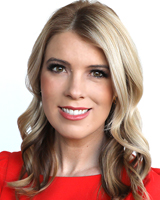How surging Delta variant may impact Bay Area after Fourth of July weekend
Bay Area doctors explain what you can do to protect yourself and others from the Delta variant.


SAN FRANCISCO (KGO) -- Last summer there was a surge in COVID cases. This summer, 64% of people 12 and older in the U.S. are at least partially vaccinated, but it's still not enough. Doctors say the Delta variant could create clusters of new cases after the holiday weekend.
RELATED: As Delta variant turns into dominant strain in California, scientists detect 'Delta plus'
With much of the country re-opened, the Fourth of July felt a lot closer to pre-pandemic times. But while 50 million people traveled by car and plane over the long weekend, new cases of the highly transmissible Delta variant continued to spread, as the country came up short - by 7 million shots - of President Biden's self-imposed vaccine goal.
"There are four states in this country that we are more concerned about in terms of lower rates of vaccination. They are Utah Nevada, Arkansas and Missouri," explained UCSF infectious disease doctor, Monica Gandhi.
"I live in a rural area and it's pretty hard-hit and you guys here in San Francisco seem to be on it," said Brian Walker who is visiting the Bay Area from Indiana. "We're really struggling in some of our rural areas to get the shots and get everybody back on their feet."
VIDEO: 'CA could backtrack' amid rapid spread of COVID-19 Delta variant, doctors say

While the Delta variant is fueling surges in under-vaccinated states, ABC7 News Vaccine Team member, Dr. Alok Patel said, "I just don't think we're going to see a national surge the way we had the potential to last year from these holidays."
Dr. Patel also said it's too soon to say what kind of impact localized surges will have.
"What we're waiting to see is if there's an increase in hospitalizations, because right now we are seeing an increase in the Delta variant in young people and other people who are unvaccinated," he explained. "We've yet to see what's really going to happen and if it's going to spread and create a larger outbreak."
RELATED: Preliminary data indicates Moderna vaccine effective against variants
UCSF epidemiologist, Dr. George Rutherford, says it's possible that even in the Bay Area, small clusters of COVID outbreaks could occur among un-vaccinated people, noting, "I know Alameda County had a few hundred cases last week."
Kate Larsen: "Are you more concerned now about the Delta variant than you were a few weeks ago?
Dr. George Rutherford: "I am.... With the early variants, if there was a case in a household, about 20% of the people would get infected in the household. Now it's probably closer to half."
But 82% of San Francisco residents 12 and up have received at least one vaccine dose.
RELATED: Scientists concerned about Delta COVID variant as CA gears up for reopening
Dr. Rutherford says because of high vaccination rates, it's unlikely surges in other parts of the country will impact the Bay Area in the same way.
"We have kind of a wall immunity around the state and that's going to keep transmission low. It's not going to make it zero, but it's going to keep it low as we have these introductions," he said.
Dr. Rutherford says it's likely people in the Bay Area will be exposed to the Delta variant, which is why it's so important to get vaccinated.
Dr. Patel says if people think they were exposed to COVID-19 over the weekend, or were spending time with unvaccinated people, it's also important they get a COVID-19 test, even if they don't have symptoms.
Having trouble loading the tracker above? Click here to open it in a new window. RELATED STORIES & VIDEOS:
- Map shows which counties can, can't reopen under reopening tiers
- Cheat sheet: What you can and can't do after being fully vaccinated
- How to register for a COVID-19 vaccine in every Bay Area county
- Map shows everywhere you can get a COVID-19 test in the Bay Area
- Interactive map shows what's closed and what's reopening in the San Francisco Bay Area
- Data tracker: Coronavirus cases, deaths, hospitalizations in every Bay Area county
- Third stimulus check calculator: See how much you could get
- COVID-19 Diaries: Personal stories of Bay Area residents during pandemic
- Get the latest updates on California EDD, stimulus checks, unemployment benefits
- Coronavirus origin: Where did COVID-19 come from?
- What is a COVID-19 genetic, antigen and antibody test?
- What does COVID-19 do to your body and why does it spread so easily?
- Coronavirus Timeline: Tracking major moments of COVID-19 pandemic in San Francisco Bay Area
- Coronavirus Doctor's Note: Dr. Alok Patel gives his insight into COVID-19 pandemic










